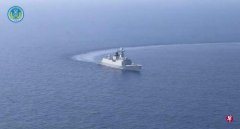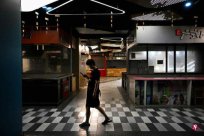Ke Wenzhe, a presidential candidate for the Taiwanese party, advocated that the tuition fee for freezing allows everyone to study in college because they are scratching food and upside down, and tuition fees should rise. The government can allow vulnerable students to read through subsidies.
Ke Wenzhe posted a series of "KP countries is a meeting" series of video on the YouTube Channel on Saturday (August 19), talking about the problems facing Taiwan's higher education.
Ke Wenzhe said in the video that in the past 20 years, Taiwan's health insurance costs have risen by 40%, while the increase in tuition fees for universities in the same period is 0%, which is inconsistent with the rise in prices and the rise in higher education.He criticized that tuition fees rose in order to cause everyone to study without obstacles, which was due to the method of scrapping food and upside down.
Ke Wenzhe proposed that tuition fees should rise. At the same time, the government can read books through scholarships and subsidies, instead of reducing the tuition fees.
Ke Wenzhe said that Taiwan ’s universities now face five major dilemmas, including private universities, insufficient international competitiveness, poor school connection with the industry, poor internal governance, and no good use of technology.
The solutions he proposed include rationalization of tuition fees, and recruiting more international students and increasing the proportion to 20%, so that Taiwanese students can establish an international outlook.In addition, he also suggested that enterprises to set up project classrooms in the university to promote industry -academia cooperation, and referring to relying on the communication ability of future education ministers to launch this method of deducting income tax.
In June of this year, the Taiwan Executive Yuan passed the gap between the non -private schools and the supporting measures of the public school.Subsidies for vulnerable students.Ke Wenzhe had criticized this policy to be launched at the time and implemented it next year. It was the "policy buying ticket" behavior of the DPP.



